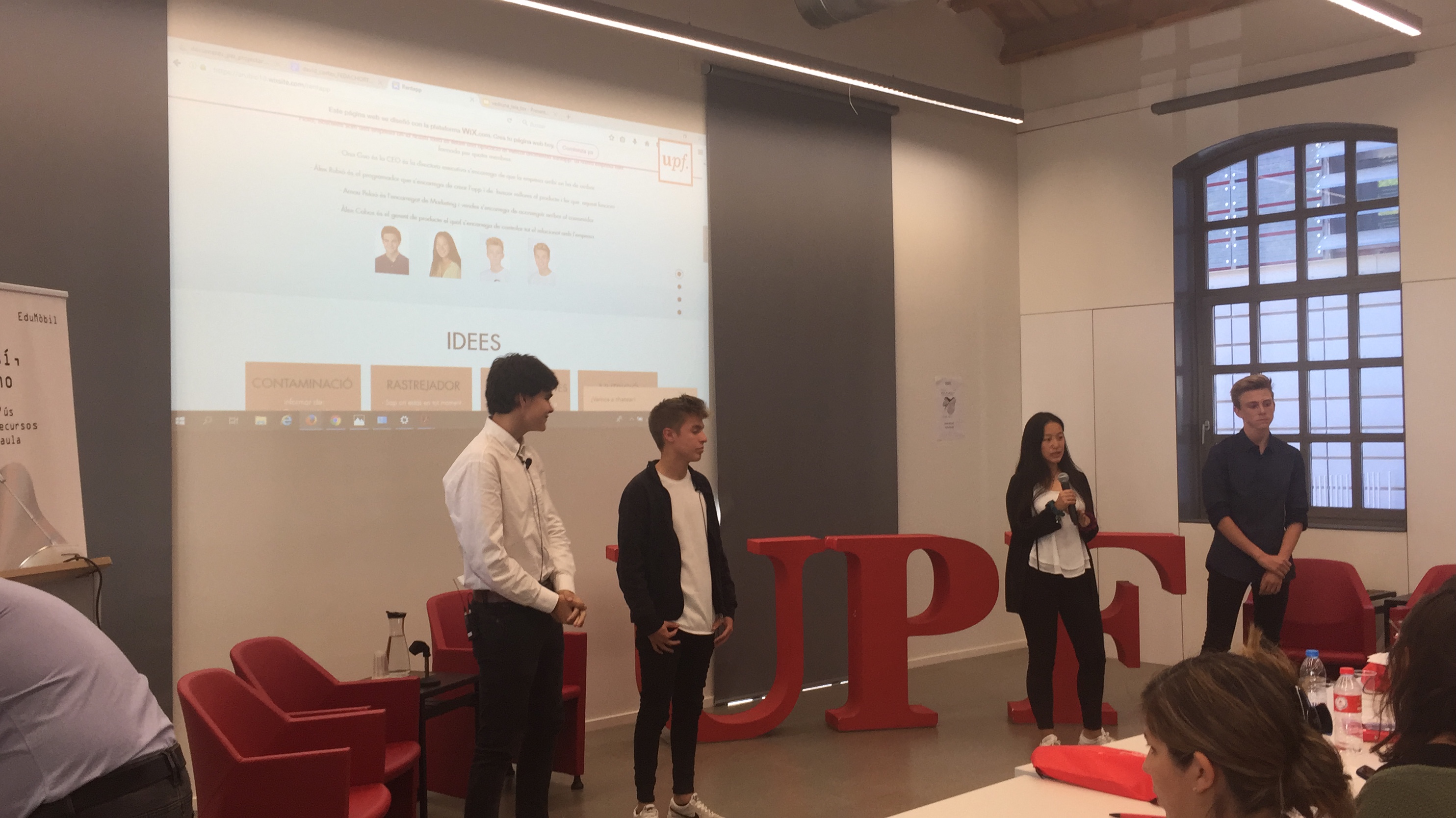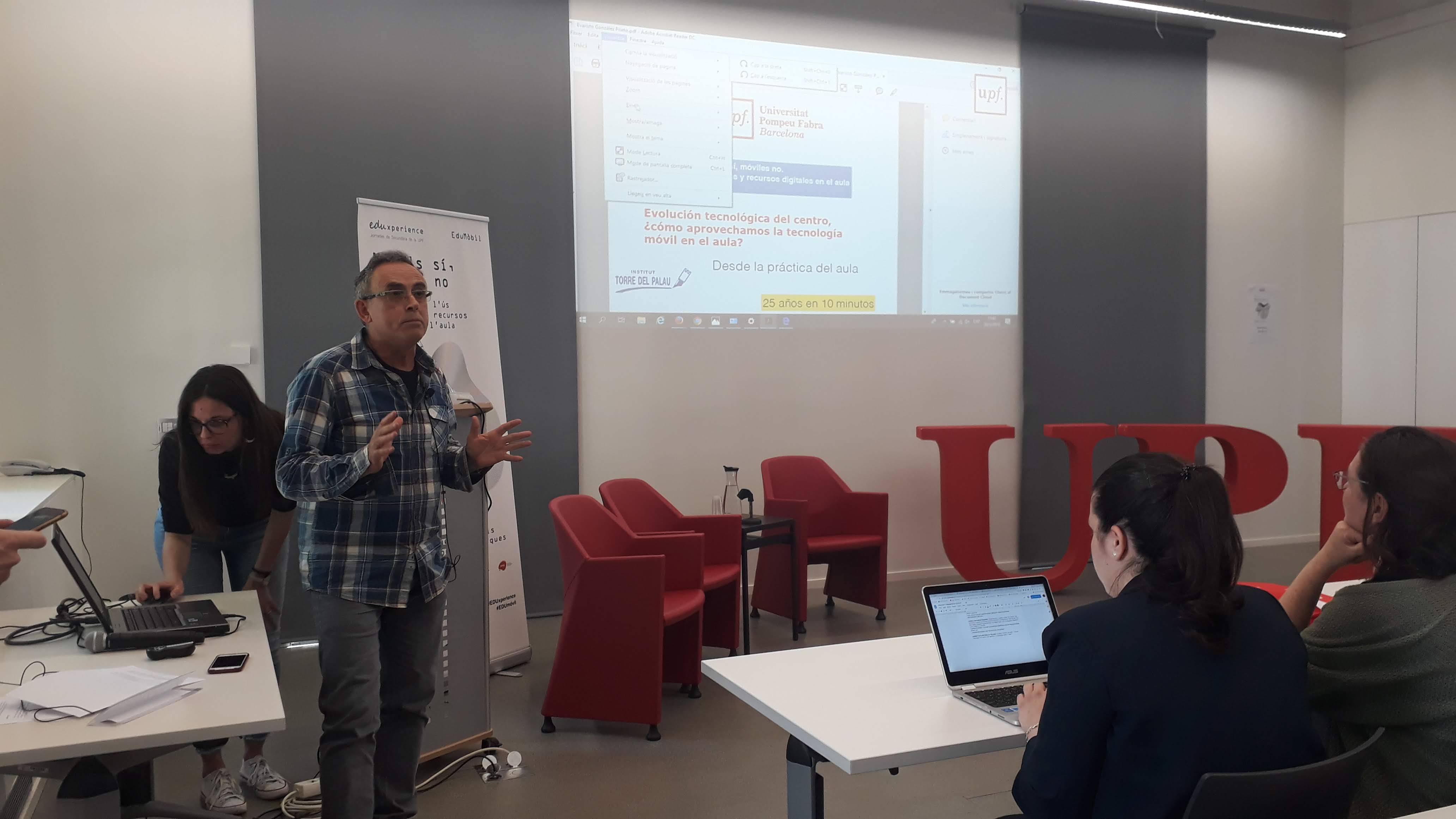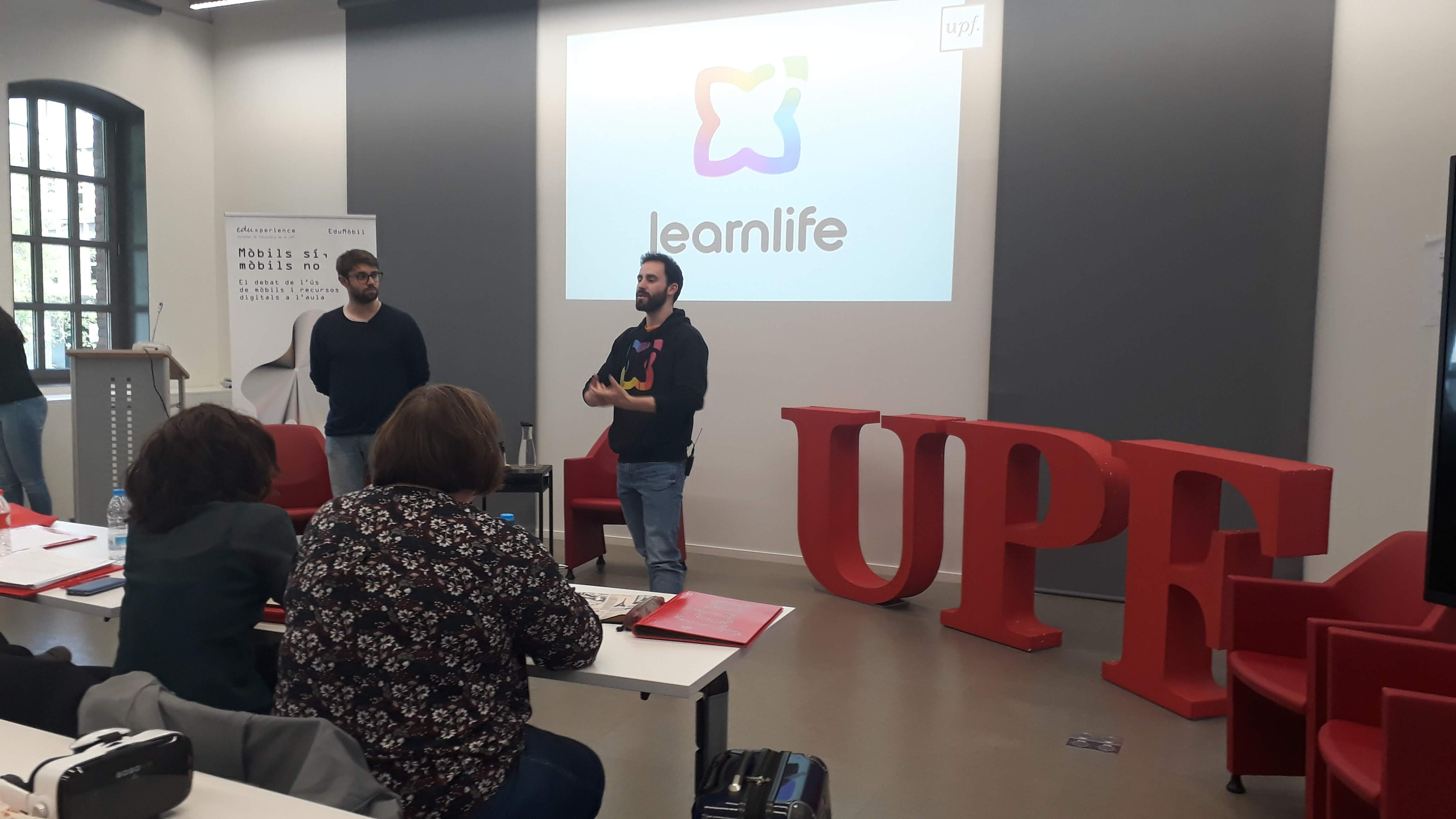The UPF secondary school workshops, EDUxperience, present educational experiences about the use of technology as a tool for education
The UPF secondary school workshops, EDUxperience, present educational experiences about the use of technology as a tool for education
This year, the UPF secondary school workshops joined together with the EDUmòbil workshop on a project aimed at debating the current role of mobile devices in the educational environment of both the university and of secondary schools.
The Centre for Learning Innovation and Knowledge, CLIK, and the Youth, Society and Communication Research Group, JOVIScom, joined forces to organise a workshop together, EDUmòbil+EDUxperience, which took place on the 29th of May on the Poblenou campus. Firstly, the results of the I + D project “The media skills of citizens in emerging digital media in university environments” were presented, and secondly, a series of success experiences were proposed using the Ted Talks format.
Mònica Figueras, the lead researcher (IP) of the project, and Manel Jiménez, the academic director of the CLIK, hosted the workshop, and Mar Camacho, the Director General of Innovation, Research and Digital Culture from the Department of Education of the Government of Catalonia, was responsible for opening the workshop and highlighting the importance of mobile technology as an educational tool which has been recently acquired.
EDUxperience, the UPF secondary school workshops
In the afternoon there was an opportunity to share experiences. Representatives of secondary school students and teachers attended the event, as well as representatives of an innovative educational initiative, Learnlife.
Students:
The FEDAC-Horta school’s fourth year students of ESO (obligatory secondary education); Àlex Cobos, Arnau Pelaó, Ona Guo and Àlex Fluviò, along with their teacher, David Cortés, presented their experience, based on the creation of a business bringing the Rentapp application to the market, which was designed to facilitate the procedures for the declaration of salaries. Through this exciting project, and the use of the tools that technology offers, the students took on different roles and responsibilities, both directive and executive, within the company.
The Vedruna Berga school’s third year student of ESO (obligatory secondary education), Laia Tor, surprised the audience with her communication abilities when she presented the project from the Vedruna schools network; ART 360, a virtual tour of the legacy of our territory. The project was created with the aim of promoting initiatives to encourage the teamwork and the interdisciplinary nature of the Vedruna centres.
Teachers:
 Miquel Navarro, a teacher at the Joan Salvat Papasseit High School in Barceloneta, demonstrated the usefulness of mobile phones in the experience; 'Graphic Design for Fashion. Pop Up Activity inspired by Bauhaus School 1919/2019' which the students experienced along with the students of the Vatiala Koulo school in Tampere, Finland, who were participating in the ERASMUS plus programme. Miquel Navarro maintains that the debate is no longer the issue of whether or not mobile phones should be used in the classroom, but in how we can make the most of them as a learning tool.
Miquel Navarro, a teacher at the Joan Salvat Papasseit High School in Barceloneta, demonstrated the usefulness of mobile phones in the experience; 'Graphic Design for Fashion. Pop Up Activity inspired by Bauhaus School 1919/2019' which the students experienced along with the students of the Vatiala Koulo school in Tampere, Finland, who were participating in the ERASMUS plus programme. Miquel Navarro maintains that the debate is no longer the issue of whether or not mobile phones should be used in the classroom, but in how we can make the most of them as a learning tool.
To the same end, Evaristo González, a teacher at the Torre del Palau High School in Terrassa, used the request “Por favor, enciende el móvil cuando entres en clase” (Please, turn on your phone when you come into class) to defend the use of the mobile phone as a pedagogical tool in classrooms as, in this way, the students are more motivated and they learn to use new technologies in a more responsible way.
Herminio Manzano, from the Joan Pelegrí school in Hostafrancs, added his support to the idea stating that; “In 2010 mobile phones were prohibited in class. In 2018 we have radically changed the paradigm to recognize the role of the mobile phone and to make the most of its good uses”.
Innovative educational projects:
Finally, Adrià Balcázar and Joan Urgell explained the educational project Learnlife, which proposes a new paradigm of learning that wants to incorporate the current needs of the working market in education. The aim of  the new model is to empower people by encouraging positive relationships and using innovative tools. The model aims to develop the key skills that are required by current organisations, such as flexibility, the ability to adapt to change, creativity and collaboration or co-creation, amongst others.
the new model is to empower people by encouraging positive relationships and using innovative tools. The model aims to develop the key skills that are required by current organisations, such as flexibility, the ability to adapt to change, creativity and collaboration or co-creation, amongst others.
The attendees of the event had the opportunity to participate with their own mobile phone and use tools such as Mentimeter or Twitter, through the dynamic presentation of Elena Ojando, a pedagogue, psychologist and teacher at the FPCEE Blanquerna Faculty.
